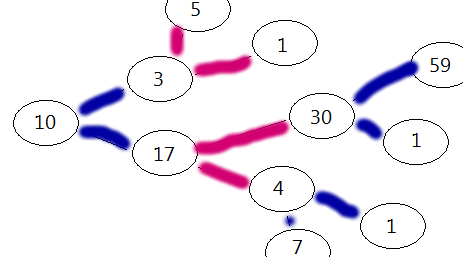The Game of Subtracting Primes
 Ivan
and
Jake
are playing a game with the following rules:
Ivan
and
Jake
are playing a game with the following rules:
- The game starts with a parameter N which is a positive integer.
- Ivan always plays first.
- In each turn, the player can either choose to add or subtract the largest prime smaller than N, to N.
- The loser is the person who cannot continue. The other person wins by default.
Example
1 2 3 4 5 6 |
|
Now, suppose that Ivan and Jake know how to play optimally. For how many starting values of does Jake win?
The answer is 3984.
This section requires Javascript.
You are seeing this because something didn't load right. We suggest you, (a) try
refreshing the page, (b) enabling javascript if it is disabled on your browser and,
finally, (c)
loading the
non-javascript version of this page
. We're sorry about the hassle.
Mathematica Code:
Note that there is no guarantee (so far), that this computing procedure halts for all N but it will be enough for 10^4